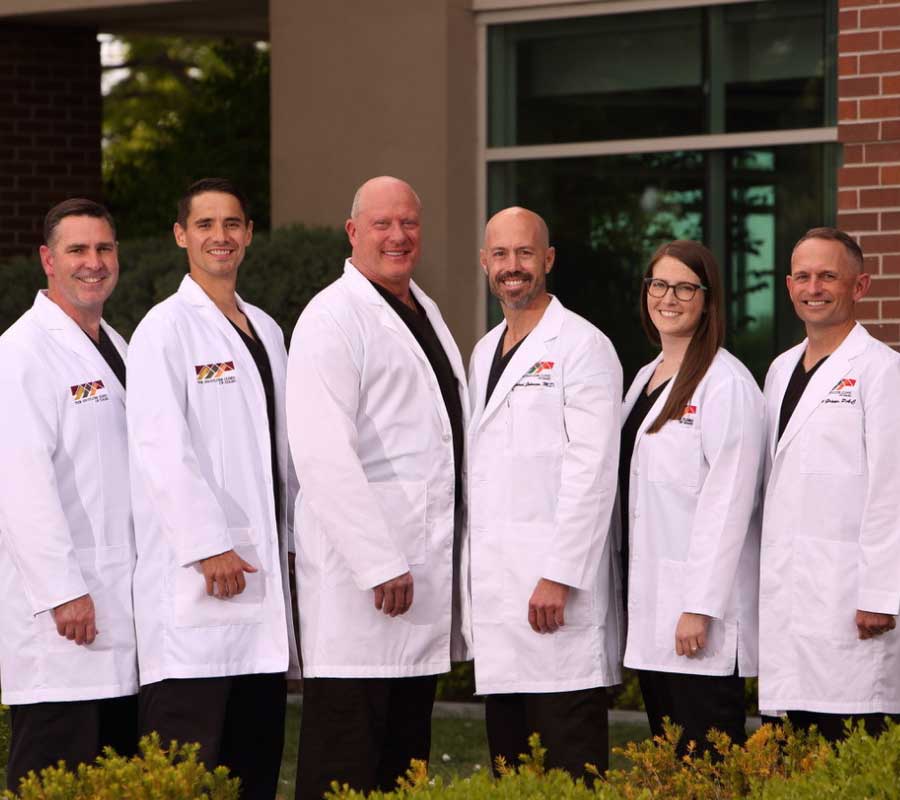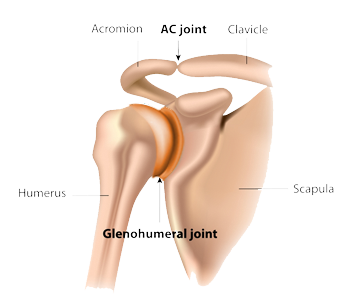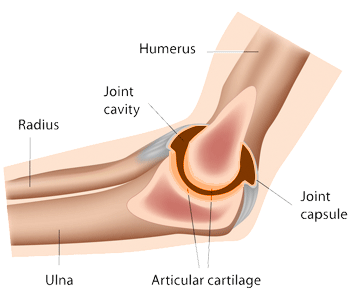Frozen Shoulder Specialists

Are you experiencing a stiff shoulder? If so, you may be suffering from a condition known as frozen shoulder. Frozen shoulder typically affects patients between the ages of 40 and 60 years, and females are much more likely to develop this condition than males. The frozen shoulder specialists at the Shoulder Clinic of Idaho provide diagnosis and both surgical and nonsurgical treatment options for patients in the Boise area who have developed frozen shoulder. Contact the Shoulder Clinic of Idaho team today!
What is Frozen Shoulder?
Adhesive Capsulitis is a medical term commonly used for a frozen shoulder. It is a shoulder joint condition that causes symptoms of pain, discomfort, stiffness and limited movement. Frozen shoulder develops when connective tissue surrounding the joint thickens and tightens, creating scar tissue around the joint. The scar tissue, or “adhesions”, contributes to a loss of motion and restricts arm movement.
In many cases, frozen shoulder can result in a complete loss of function of the shoulder joint. Simple daily tasks, such as dressing or driving a car, can become painful and difficult. The orthopedic specialists at The Shoulder Clinic of Idaho serving Boise, Meridian, Nampa, and the surrounding communities of the Treasure Valley have extensive experience in treating patients with frozen shoulder, adhesive capsulitis of the shoulder, and symptoms of shoulder pain and stiffness.
What are the stages of adhesive capsulitis?
Frozen shoulder develops in three stages:
- Freezing: Symptoms gradually worsen over time and patients slowly have more pain. As the pain intensifies and the adhesions advance, the range of motion of the shoulder joint decreases. Freezing lasts about 6 weeks to 9 months.
- Frozen: The symptom of pain may actually decrease during the frozen period however, stiffness remains. Pain can be felt at the extremes of shoulder motion. Daily activities are very difficult due to the limited range of motion of the shoulder. The frozen stage can last from 4 to 6 months.
- Thawing: Shoulder range of motion improves during the thawing stage which can take from 6 months to 2 years. Most patients experience a return of normal shoulder function, but may have a slight loss of shoulder motion upon resolution.
What are the symptoms of frozen shoulder?
Frozen shoulder is most commonly seen in females between the age of 40 and 60. It may involve the dominant or nondominant hand and Symptoms include:
- Gradual stiffness in the shoulder joint, accompanied by pain.
- The inability to move the arm or rotate the shoulder. Patients often cannot place their hand behind their back and touch their shoulder blade
- Reduced range of motion.
- Pain – a dull, achy sensation is often reported and can intensify at the extremes of motion.
- Shoulder weakness and guarding secondary to shoulder pain and stiffness.
What causes a Frozen Shoulder?
The causes of frozen shoulder, or why some patients are more prone to the condition, are not completely understood. Factors that have been common in patients with this condition are:
- Immobilization: If the shoulder has been immobilized for a period of time, due to fracture or injury, frozen shoulder can develop.
- Diabetes: Frozen shoulder occurs more often in people with diabetes, although the reason is unknown. Patients with diabetes often experience frozen shoulder for a longer period of time before “thawing.”
- Other risk factors: Medical conditions associated with frozen shoulder include thyroid disorders, cardiovascular disease, pulmonary conditions, neurological conditions, breast cancer treatment, cervical disease, and Parkinson’s disease.
How is Frozen Shoulder Diagnosed?
After reviewing a patient’s medical history, the orthopedic shoulder specialists at The Shoulder Clinic of Idaho, will complete a physical exam testing range of motion, areas of pain and where limited mobility occurs in the shoulder. The diagnosis of frozen shoulder or adhesive capsulitis can usually be confirmed based on history and examination. If another condition is suspected such as shoulder arthritis or a rotator cuff tear, additional testing, such as an MRI scan, or an x-ray, of the shoulder may be performed
What are Frozen Shoulder Treatment Options?
Frozen shoulder generally gets better with time. Though the duration toward resolution may take two years. A daily stretching program, with stretches done multiple times a day, can be beneficial in restoring range of motion and alleviating pain. Non-steroidal anti-inflammatory medications may be recommended along with a corticosteroid injection which may alleviate acute symptoms.
Weight bearing or strengthening exercises should be avoided while the shoulder is frozen, as it can make the problem worse. Strengthening an already stiff and painful shoulder can delay recovery.
Does Adhesive Capsulitis Require Surgery?
For those patients who struggle to regain shoulder motion and pain relief despite compliance with a daily stretching program, surgical intervention can be considered. The shoulder specialists at The Shoulder Clinic of Idaho have experience with arthroscopic surgery that may provide benefit to those patients with a frozen shoulder. An arthroscopic procedure called a “Lysis of Adhesions” or “capsular release” can be performed combined with a manual manipulation of the shoulder. An arthroscopic shoulder release procedure, done before a shoulder manipulation, can reduce the risk of injury to the tendons and bones. This procedure is followed immediately by a return to physical therapy.
Patients in the Boise, Meridian, Nampa, and the surrounding communities of the Treasure Valley have found that arthroscopic shoulder treatment affords them a more controlled and precise release of the shoulder capsule. Shoulder specialists and orthopedic surgeons prefer this technique as it allows the added benefit of inspecting the glenohumeral joint in a minimally invasive fashion.
The Shoulder Clinic of Idaho serves patients in Boise, Meridian, Nampa, and the surrounding communities of the Treasure Valley. If you have symptoms of a frozen shoulder, or an unknown cause of shoulder pain, please contact the our offices for a consultation.
- Joseph Lynch, MD, has written an article about frozen shoulder, please click here* to read more.



